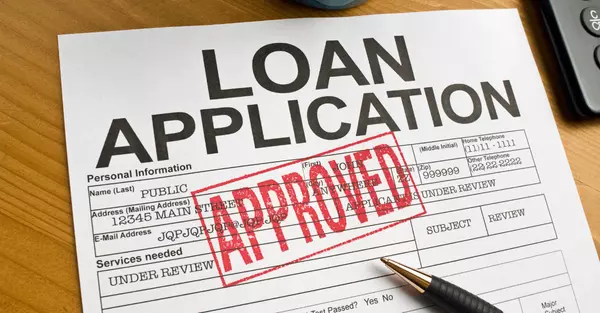Rent-Back Tips for Home Sellers in Northern Virginia

When selling a home in Northern Virginia's competitive real estate market, one of the strategies that can offer both flexibility and peace of mind is a rent-back agreement. This arrangement, also known as a "post-settlement occupancy" or "seller rent-back," allows the seller to remain in their home for a specified period after the sale closes, while paying rent to the new owner. Whether you're waiting for your next home to be ready or simply need more time to move, a rent-back agreement can be a valuable tool in your home-selling process. In this comprehensive guide, we'll explore the key benefits of rent-back agreements, how to negotiate the best terms, and tips to ensure a smooth transition.
What is a Rent-Back Agreement?
A rent-back agreement is a contractual arrangement between the home seller and the buyer that allows the seller to continue living in the property for a specified period after the sale has closed. Essentially, the seller becomes the tenant, and the buyer becomes the landlord. This is a common practice in competitive real estate markets like Northern Virginia, where finding a new home can take time.
Key Features of a Rent-Back Agreement:
- Duration: Typically, rent-back agreements are short-term, ranging from a few days to a few months. The duration should be clearly stated in the contract.
- Rent Amount: The rent the seller pays is usually based on the buyer's carrying costs (mortgage, taxes, insurance) or market rental rates. This amount should be agreed upon before closing.
- Security Deposit: Like any rental agreement, a security deposit may be required to cover any potential damages or unpaid rent.
- Insurance: The seller should maintain renter's insurance during the rent-back period, and the buyer should ensure their homeowner's insurance covers a rental situation.
Benefits of a Rent-Back Agreement for Sellers
Rent-back agreements can be particularly advantageous for home sellers in Northern Virginia. Here are some of the key benefits:
1. Flexibility in Moving
One of the biggest challenges when selling a home is coordinating the sale with the purchase of a new one. If your next home isn't ready, or if you haven't found your next place yet, a rent-back agreement gives you the flexibility to stay in your current home while finalizing your next move. This can reduce the stress of finding temporary housing or rushing to move out.
2. Negotiating Leverage
In a competitive market like Northern Virginia, where buyers may be eager to secure a property, offering a rent-back can be an attractive option. If multiple buyers are interested in your home, you can use the potential for a rent-back as a negotiating tool to secure a better sale price or more favorable terms.
3. Avoid Double Moves
Moving twice—once to temporary housing and then again to your new home—can be both stressful and costly. A rent-back agreement allows you to move directly from your current home to your new one, saving time, money, and hassle.
4. Increased Buyer Pool
By offering a rent-back option, you may attract a broader range of buyers, including those who are flexible with their move-in dates. This can increase competition for your home and potentially lead to a higher sale price.
Tips for Negotiating a Rent-Back Agreement
If you're considering a rent-back arrangement, it's essential to negotiate terms that are fair and clear to both parties. Here are some tips to help you negotiate a successful rent-back agreement:
1. Define the Terms Clearly
The most critical aspect of a rent-back agreement is clarity. Make sure all the terms are explicitly stated in the contract, including:
- Duration of the Rent-Back: Specify the exact start and end dates of the rent-back period.
- Rental Amount: Clearly state the rent amount and how it was calculated. Typically, the rent is based on the buyer’s mortgage payments, property taxes, and insurance.
- Payment Schedule: Outline when and how the rent will be paid (e.g., monthly, bi-weekly).
- Utilities: Determine who will be responsible for paying utilities during the rent-back period. Usually, the seller continues to pay utilities, but this should be agreed upon in writing.
- Security Deposit: If a security deposit is required, specify the amount and conditions for its return.
2. Consider Insurance Needs
During the rent-back period, the seller is technically a tenant. As such, the seller should obtain renter’s insurance to protect their belongings and liability. Additionally, the buyer (now the landlord) should ensure their homeowner’s insurance policy covers a temporary rental situation. Discuss these requirements with your insurance agent to avoid any gaps in coverage.
3. Perform a Pre- and Post-Rent-Back Walkthrough
To avoid disputes over the condition of the home, it's wise to conduct a walkthrough before the rent-back period begins and another one when it ends. Document the home’s condition with photos or videos and have both parties sign off on it. This documentation will help if there are any disagreements about the return of the security deposit or potential damages.
4. Negotiate for a Grace Period
If possible, negotiate a short grace period at the end of the rent-back agreement. This buffer can be beneficial if your moving plans encounter unexpected delays. A grace period of a few days can give you the extra time you might need to ensure a smooth transition to your new home.
5. Establish a Contingency Plan
Life is unpredictable, and sometimes plans change. Establish a contingency plan in the event that either party needs to adjust the terms of the rent-back agreement. This could include provisions for extending the rent-back period or penalties for early termination. Having these contingencies in place can provide peace of mind for both the seller and the buyer.
6. Consult with Legal and Real Estate Professionals
Because rent-back agreements are legally binding contracts, it’s essential to consult with your real estate agent and, if necessary, a real estate attorney. They can ensure that the agreement is fair, complies with local laws, and protects your interests. This professional advice is invaluable in avoiding potential legal issues down the road.
Potential Risks of a Rent-Back Agreement
While rent-back agreements offer many benefits, they also come with potential risks that both sellers and buyers should be aware of:
1. Liability Issues
As a seller staying in the home, you are now a tenant, and any damages or accidents that occur during the rent-back period could become your responsibility. This is why having adequate insurance coverage is critical. Make sure you understand your liabilities and take steps to mitigate risks.
2. Potential Buyer Concerns
Some buyers may be hesitant to agree to a rent-back arrangement, particularly if they’re eager to move in quickly. Additionally, buyers may worry about potential damages during the rent-back period or the risk of the seller overstaying their welcome. Address these concerns by offering a fair rent amount, a security deposit, and a clear agreement on the condition of the home.
3. Increased Costs
While a rent-back agreement can save you from the costs of temporary housing, it’s important to factor in the rent you’ll be paying to the new owner. Make sure the rental amount is reasonable and fits within your budget, considering the overall financial implications of the agreement.
Conclusion: Making Rent-Back Work for You
A rent-back agreement can be an excellent solution for home sellers in Northern Virginia who need extra time to move or are waiting for their next home to be ready. By understanding the benefits, carefully negotiating the terms, and being aware of the potential risks, you can make this arrangement work to your advantage.
Whether you're selling your home in a hot market or just need a bit more time to coordinate your next steps, a rent-back agreement offers the flexibility you need while ensuring a smooth and successful home-selling experience.
Need help navigating the complexities of a rent-back agreement? Contact Josue “Josh” Ruiz today for expert advice and personalized real estate services that make your home-selling process as smooth as possible. Let’s make your real estate journey a success!
Categories
Recent Posts











"My job is to find and attract mastery-based agents to the office, protect the culture, and make sure everyone is happy! "
14291 Park Meadow Drive Suite 500, Chantilly, VA, 20151
